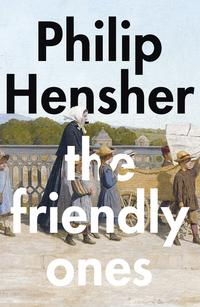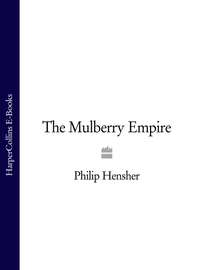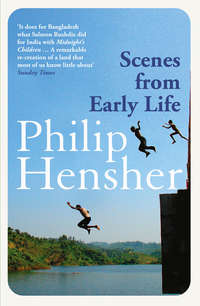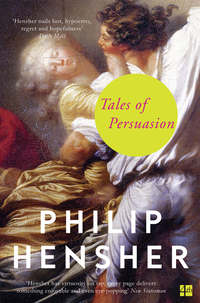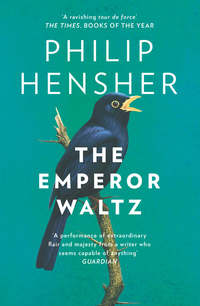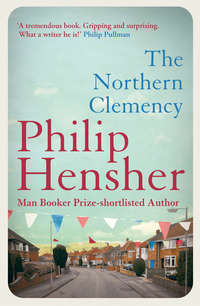
Полная версия
King of the Badgers
There was a square brick warehouse from the turn of the century on the quayside where a bus into Barnstaple waited, the driver sitting on the step with the door open, reading a thriller with some absorption. Three geese, like old womanly friends with no urgent occupation, stood in the middle of the concrete apron, sizing him up as a likely source of bread. The building must once have been a storehouse for the fish industry but now it turned out to be filled with antiques of every description. There were pretty old pubs whose names had to have some story behind them—the Case Is Altered! On the high street, blue, white and red bunting hung from side to side in high airy zigzags. It must have been for the Hanmouth Festival with a procession led by the Hanmouth Festival Queen 2008. Catherine and Alec read about it in a series of shop windows. Alec remarked that the procession would be a short one. The high street—the Fore street, as many Devon main streets were called—was a bare five hundred yards long.
There were two Italian restaurants. One had pretensions, the other gingham tablecloths and a pizza menu. There was a French bistro where everything, white tablecloths, white walls, glassware, cutlery, seemed to polish and reflect Catherine’s smile back at her through the windows. There was no Chinese takeaway or kebab shop, as far as she could see. There was a cheese shop, with a plump man in a blue and white striped apron, proffering wafery samples with good cheer to his customers. Best of all, there was a butcher. It was unexpected how butchers had become a means to register the life and independence of any English town. Until recently they had been an ordinary and unnoticed presence in a community of any size. Now they had become a thermometer measuring a body’s health, and the last butcher in St Albans had given up the unequal struggle with Tesco’s meat counter three years before. For no very good reason, they joined the queue in the Hanmouth butcher’s and bought two pounds of their homemade sausages. ‘We’re almost down to the last of the free-rangers till Tuesday,’ the butcher told the shopper before her. Catherine inwardly shivered for shame that the town in which she had made her home had not, it seemed, needed a butcher. The town was busy and jolly. On their way back to Barbara’s for a lunch of soup, bread-and-Wensleydale and a salad, Catherine and Alec agreed that if they ever moved from St Albans, this was the sort of place that they would like to live in.
Neither of them could pin down exactly when it was that they had firmly decided to move. Their growing seriousness about the idea had been marked by their growing engagement with the Hanmouth estate agents. At first they only looked in the windows of estate agents. Frustratingly, they did not display the prices of the houses at the upper and most intriguing end. Often, the grandest houses had their own glossy brochures. They soon graduated, in a series of interviews, to pretending to be interested in buying a house. Nosily, they went round half a dozen they could never have afforded, tutting and shaking their heads sorrowfully over the lack of a utility room, a library, a music room.
It was embarrassing to have to go back to the same estate agents, a month later, after a serious conversation or two, with different aims. They had to concoct a story that they had decided, after consideration, not to move down there permanently. (‘A permanent residence,’ Alec had said, overdoing it.) They now wanted a holiday home. Their invented objections gave way to real ones: plausible fishermen’s cottages, almshouses, inter-war semis dropped away. Too small, too expensive, facing east, facing west, too large, the worst house in a good area (embarrassment), the best house in a bad area (ostentation). A garden to keep up; a garage, which would only fill with junk. There seemed no objection that a property in Hanmouth would not meet in the most specific terms.
16.
Added to these objections were the comments of David, their son. They had told him about their intentions only at that point. He had been dubious. He had gone on living in St Albans, though he worked in London and commuted every day. Perhaps he was not the right person to consult about any adventurous enterprise. They knew people in St Albans, apart from him. They were familiar with things and services thereabouts. What if something went wrong, what if someone fell ill? At home in St Albans, they would be surrounded by willing volunteers from their circle. In this town in Devon they’d taken a liking to, no one would even know either of them was ill. No one would think of helping out. They were getting on. These things had to be thought about.
These gloomy objections were evidently weighing in Alec’s mind when, for the seventh time that year, they found themselves in a Hanmouth estate agent’s. One of three. It was an unpromising day for viewing anything: rain at St Albans had turned steadily colder as they headed westwards, and by now the sleet was so thick outside that you could barely see the other side of the Fore street. Maria, the untidy woman in charge, hair flying and papers everywhere on the desk, like the White Queen in steady employment, had said over the telephone that there was a nice house which had just come on the market. Should she send them the particulars? Maria had giggled as she said this, and as she said most things, though none of them were at all amusing. They had driven down the same morning. Maria had been taken aback to see them, though Alec had definitely said, ‘We’ll pop over this afternoon,’ on the telephone. She hadn’t been able to find the keys at first: she knew she hadn’t popped them on the key rack, she’d just dropped them for a moment—scream of laughter—as she’d come in to take her coat off and run herself up a little cup of coffee, because she’d picked them up on her way in; Apthorpe Avenue was really the way she took from home into work—a small giggle. A Mozart piano concerto on Classic FM formed a backdrop to Maria’s comments; as she turned half her desk upside down searching for the keys, she was starting in on a description of the house, very nice, pre-war, a striking sculpture in the front garden, had been lived in by the same owner for nearly forty years, but he’d taken good care of it.
Catherine started to suspect and, as Maria continued, grew sure of it, that the house she was talking about was, in fact, a house she had shown them eight months earlier; it had come off the market without finding a buyer (faced west, seller immovable on price). It had, evidently, now come back on. Maria had forgotten or never knew that she had shown Catherine and Alec the house. As inspiration started to fail her, Alec began to interject with unhelpfully general observations: perhaps David had a point. Did they want to be moving to a town where they’d be making new friends from scratch? What if one of them had a turn of some sort? And then there was the question of security, wasn’t there? They’d hardly considered that. This was a rich town, but not everywhere near here was rich. What did they know about the burglary situation? Was it even safe to walk the streets at night? There were a lot of pubs, weren’t there? You heard about such things in country towns—it was as bad on a Saturday night as in St Albans, or so Alec had heard.
Maria seemed to be paying little attention to Alec, dourly backsliding from his househunting obligations. She was only putting in encouraging titters, an occasional ‘Oh, surely…’ and an ‘I think you’ll find…’ and an ‘It’s really ever such a, er, er, supportive little community we’ve got here,’ this last bringing out a gale of laughter. Her attention moved from the attempt to find the keys to Apthorpe Avenue, which, she had started to confide, might very well be in her house, she having picked them up not on her way in but on her way home last night. She looked at the window where, between the tessellated placards of the houses for sale, a dark figure had coagulated out of the dark afternoon sleet.
‘There,’ she said, with finality. ‘That’s convenient. Here’s our Mr Calvin—I wonder if he’s in a great hurry to get anywhere. He can tell you so much more about that side of things in Hanmouth than I can.’
She jumped up. A desk-tidy with three pencils in it was sent flying. She poked her head outside the door, letting in a fierce blast of ozone-frozen air. After a brief exchange, she ushered the man in. His black coat and black astrakhan hat were mantled with sleet and snow. Like a magician performing a trick, he removed them in a single upwards gesture, placing them on the coat-rack, unpeeled his brown ostrich-skin gloves and placed them neatly aligned on Maria’s catastrophic desk. With a quick rub of his heavily polished shoes up the back of his pinstriped trousers, right and then left, he seemed never to have been outside at all. He was thin and upright, had clean mouse-like, beady-eyed, polished features, and a smoothed-down cap of white hair. His hands went up, unnecessarily, to smooth his hair down to right and left; they were strikingly large and flat hands, like flippers.
‘This is our Mr Calvin,’ Maria said. The man’s sleek smile went from Alec to Catherine, from Catherine to Alec, without registering any change at all. The sort of smile that dolphins have, built into their bones and into their faces, meaning nothing much, Catherine believed. She wondered what he was seeing: a woman with the anxious, motherly expression she had so often caught unawares in shop windows, and her bald, pugnacious husband, in the dim sort of beige anorak, padded, toggled and with multiple purposeful pockets that you could not believe you had ever bought with any intent to charm, beguile or seduce. If that was what you wanted an anorak to do for you.
‘Mr and Mrs Butterworth,’ Maria said. ‘They’re looking for a house to buy in Hanmouth. We’ve been at it quite some little time. The first houses we looked at’ —gesturing at the bleak midwinter outside— ‘we had to stop halfway and have a sit-down and an ice-cream, it was so hot. Can you—’ her shrill, sentence-punctuating laugh went up the scale, and cut abruptly off.
‘Top of the morning to you,’ Calvin said. ‘And a beautiful morning it be.’ Then he switched disconcertingly out of his stage comic Irishness into ordinary English. ‘You’ll love it here. I moved down from Liverpool ten years ago, never regretted it. The weather could be better for you today, I admit.’
Alec was perking up: it was the attention of an extrovert person with a ready smile. ‘We do like it,’ he said.
Maria dived in. ‘Mr Butterworth was wondering about how safe it was in Hanmouth,’ she said. ‘And then—there you were. As if sent along to answer all those questions. You couldn’t possibly spare us two minutes? Mr Calvin, he’s the person you really want to get on your side in Hanmouth. Came along, shook everybody up, took charge of Neighbourhood Watch, which was really a very sleepy sort of body before—’ Hee, hee, hee, she went; no wonder she had no, and seemed never to have had any, colleagues.
‘I don’t think they did anything but stick orange stickers on lamp-posts,’ Calvin said. ‘Which was about as much use as a chocolate teapot, as we say in Liverpool.’
‘We have Neighbourhood Watch round us,’ Catherine said. ‘But you would only know about it from those stickers. I don’t know who runs it, or where they meet, or when.’
‘Well, you’d know about it in Hanmouth,’ Calvin said. ‘To be sure, to be sure, to be sure. We identified some active members of the community to form a new committee. We carried out a survey on day one of the new committee, asking everyone in the town what they were most concerned about. One of the pubs that caused most trouble, the one at the near end of the Strand, we objected to the renewal of their licence— “Gaarn! Leave it ahht! You lookin’ at my bird! ’E ain’t wurf it, Keif!” —and had it closed down. Turned into a tea-room. Great success. The pub crawl the students go on, it’s really the Hanmouth Eleven now, though the students still talk about Doing the Twelve. Can’t count after eight pubs, ’tis said, so it is. All that was just in our first year, year one. Then we lobbied the police and demanded security cameras. CCTV. There’s not much of the centre of Hanmouth not covered by CCTV nowadays. And that has to be a good thing. The crime rate in Hanmouth is as low as it could be. So,’ Calvin slipping into mid-Atlantic telly interviewers’ fake-serious accent, ‘how can we justify the expense of these surveillance cameras, if there is no crime? The answer, my friend, is this. There is no crime because a criminal knows he cannot commit one. The crime is headed off at the pass, long before it is committed. Voilà.’ Calvin considered for a moment, then added, ‘Monsieur. We aren’t happy that there are still parts of Hanmouth which aren’t covered by CCTV. The Fore street cameras have been there five years, and the technology has moved on. We’re working on implementing some new cameras that are being trialled in Middlesbrough, with a loudspeaker and sound system attached. A police officer sees a youth up to no good in the street. Can flick a switch, say, “’Ello, ’ello, ’ello, what’s all this then? Move along, move along, commit not that there nuisance in this ’ere street.” And Johnny Mugger or Leeeee-roy the Burglar and his dusky friends with a jemmy and an ice-pick, they lift up their knees very sharply indeed, say, “Vat is well rank, man,” and off they head to burgle somewhere a little bit less well guarded and watched, a nice safe distance away, a place which you and I do not care a great deal about. That’s the general idea. We don’t see why we shouldn’t get the model with loudspeaker by this time next year. This—’ deep breath, sincere gaze ‘—is one of the very safest places in this country. Ask anyone.’
Maria the estate agent had been smiling from the beginning, and as Calvin went through one accent after another, she started to titter, then giggle, then chortle, then chuckle, then snigger, then hoot, then roar, then guffaw. By the end, and Calvin imitating a black youth cowering under a loudspeaker ordering him to go away and burgle some less forward-looking community, she gave every impression of coming out into the open about her desire to howl till she pissed herself.
But by the end of the afternoon, they had viewed and made an offer on a big modern flat, occupying the whole top floor of a small, neat, well-made block right on the estuary, with walnut panelling in the lobby, rosewood fittings and banisters, black marble flooring from top to bottom. It was really very stylish. The previous owner had lived and died there, and his or her belongings had been carried away long ago. The empty rooms were clean, well-sized and open. They hadn’t thought of a flat at all. The attractions of those fishermen’s cottages or almshouses were fading. In practice, they always came with so individual and overwhelming a set of objections. The weather had brightened up, and the view was of silver-shining mud and a slash of light-embodying water, a thunderous zinc-black sky livid with flashes of brightness. Opposite, at the peak of the hills beyond the estuary, the castle’s folly was washed in a well of sunlight as the clouds above passed on and separated. The flat’s empty spaces were filled with watery light. Above in the sky, just as they were standing there, four swans flew overhead. Their wings made the regular beat of a solemn and remote drum. It was a noise that might mark the progress of an exotic and half-understood ceremony. For the first time in several months, Catherine remembered and thought freshly that she wanted to live in this place, and not in a road in St Albans where the view from the window was of a house with the precise dimensions of the one you yourself were in. She didn’t really care what the people were like.
‘Amusing man, that Mr Colvin,’ Alec said, on the drive home.
‘Calvin, I think it was,’ Catherine said, surprised but not wanting to dissent.
‘I think he would be a bit of a life-and-soul type,’ Alec said. ‘Probably worth getting to know once we’re down there. Centre of the social life of the place, I shouldn’t wonder.’
‘I shouldn’t be at all surprised.’
‘I hope we’re not going to hit the worst of the traffic on the M25,’ Alec said.
‘Just our luck if we did,’ Catherine said.
17.
‘Come on,’ Catherine said over the telephone to David, that same evening. ‘It’s not as if we have one foot in the grave, exactly. It’ll be perfectly all right. You’ll see.’
18.
‘I wasn’t doing anything wrong,’ the man said. On the table, a range of photographic equipment, a case lying open. A policeman was poking at the back of the camera, trying to get the digital screen to switch on. ‘It’s my job.’
‘That’s right,’ the boyish-looking girl said—she was his assistant, she’d stated. ‘We were just trying to get some good photographs. There was nothing harmful in it.’
‘We’ve got to take every precaution,’ the policeman said. ‘It’s not normal behaviour, now, is it?’
The recreation ground divided into two: the wide open grassy space, where the older kids ran and chased and played adult games, like softball and football, and the playground for the younger ones. With bright-coloured climbing apparatus and ingeniously varied swings and roundabouts, this was a popular place among the under-nines. Barnstaple Council had recently renovated the old playground, replacing the knee-crunching asphalt with some soft substance, putting in new and exotic attractions, and fencing it round. At the moment, there were few places where the young of Hanmouth could enjoy themselves. This was one of them.
That afternoon, a mother deposited her seven-year-old there after school while she went to buy a chicken from the butcher’s for dinner. She had done it before, and thought nothing of it; there were plenty of other children there. She didn’t believe in the existence of the child-snatcher in any case. When she came back, she was surprised to see two adults she’d never seen before: one, a fat bald man, was actually kneeling inside the playground, a large professional camera at his face. He was taking photographs of the children.
‘What the hell are you doing?’ she said.
The other adult, an androgynous figure, made a throat-cutting gesture. The photographer got up briskly and started walking out of the playground, straight past the mother.
‘No, no, no,’ the mother said. ‘You don’t just walk away like that.’
The pair kept on walking. The mother called to her son to stay where he was, and followed them, getting her mobile out and dialling a three-figure number as she walked.
‘You see,’ the policeman said, in the police station, ‘that doesn’t seem a very sensible thing to do in the present circumstances. Does it?’
‘It’s my job,’ the photographer said.
‘You don’t have to photograph strange children playing, do you?’ the policeman said. ‘That’s asking for trouble, I would have thought. In the present circumstances.’
‘I get told what they want photographed, and I do it,’ the photographer said.
‘I’m not charging you with anything,’ the policeman said.
‘That’s good, because he’s done nothing wrong,’ the girl said.
‘Jess,’ the photographer said.
‘But I’m not going to let you walk out of here, for your own safety,’ the policeman said. ‘Feeling’s running very high round here. The lady who made the complaint, who saw you photographing her little boy without permission from her or from Mr Calvin or from anyone else, sees you, a complete stranger, could be anyone, with this case going on, unsolved, the kidnapper at large—do you see what I’m saying? She feels very strongly about it.’
‘Well, I’m very sorry,’ the photographer said.
‘That’s the ticket,’ the policeman said, referring not to the apology but to the camera, which, with a four-note tune, had switched on, showing the last of the photographs. ‘Now. I’m not going to confiscate your camera. I can see it’s the tool of your trade and I think you’ve learnt a valuable lesson here. But I am going to take the memory card out of the camera and keep that while we look at it and what’s on it.’
‘Can’t you look at it now and give it back to me?’
‘I can’t do that,’ the policeman said. ‘We need to look at it very carefully.’
19.
The police car pulled away from the Hanmouth community centre. The photographers in the street pressed their lenses up against the window. Some were professional, working for the press. Others were using their little pocket digital cameras or even the cameras built into their mobile phones. Heidi and Micky sat as still as they could. In the front, Mr Calvin sat next to the driver, his brown pimpled attaché case on his lap. The police liaison officer was in the back with Heidi and Micky. She was supposed to be helping and comforting them. The police driver drove. He listened.
‘Thank God that’s over and done with,’ Heidi said. Her little voice was accented half by London, half by America, and by Devon not at all. It could hardly sound anything but bored. ‘I hate it when they stare at us. They’ve made their minds up and they won’t help us at all.’
‘Who’s they, Heidi?’ Mr Calvin said.
‘Those snobs,’ Heidi said. ‘Those snobs who live in Old Hanmouth. I cut their hair, half of them, and the other half I reckon they’re too much snobs to get their hair cut in Hanmouth or even in Barnstaple. I reckon they go to Bristol or to London. They know me but they don’t say hello. They stare like I’m in a zoo and they’ve paid their entrance ticket.’
‘Everyone’s very concerned and worried for China, Heidi,’ the police liaison officer said. ‘I’m sure they wouldn’t have come to find out what’s being done if they didn’t care very deeply about China’s disappearance.’
‘’Ass right,’ Micky said. ‘You want to think of that, girl.’
‘Don’t you believe it,’ Heidi said, as the police car slowed for the level crossing. An upright woman in a headscarf with a bounding Jack Russell on a lead peered into the back of the car and quickly looked away. Someone had breached good taste here. ‘They don’t care. They just want their face on the TV.’
‘Oi! Oi! Oi! Look at me, Mum! I’m on the TV! I’m famous! The more people,’ Mr Calvin said, ‘that get involved, the quicker we find China. I know some of them aren’t very nice, and they don’t really take the right attitude, but they are involved. The ones who don’t want to know—I expect the police will be asking themselves why these people are keeping themselves to themselves so much.’
Unnoticed, the driver felt his face harden into an expression of unbelief.
‘It would never have happened,’ Mr Calvin said, ‘if there’d been CCTV on Heidi’s street. But, of course, you put that to the police before something like this happens, and they give you a brush-off. “Not necessary, we do not consider that the above application if granted would represent a good use of current resources.” And then a little girl gets kidnapped and they’ve no idea at all.’
The train crossed; the barriers lifted and the car drove on. Silence fell.
‘You know the BBC are coming to interview you at home,’ Mr Calvin said. ‘They’ll be round about seven, they said.’
‘I know,’ Heidi said.
‘Am I all right like this?’ Micky said. ‘Should I put on my new shirt?’
‘You’re all right,’ Heidi said. ‘It doesn’t look good if you’re changing your clothes every five minutes. They’ll be showing this in conjunction with the footage from the press conference, I reckon.’
‘I don’t honestly think it matters all that much,’ the policewoman said.
‘Mr Calvin,’ Heidi said.
‘Yes, Heidi?’
‘I like your bag.’
‘Thank you.’
‘It’s unusual, what it’s made of, isn’t it?’


